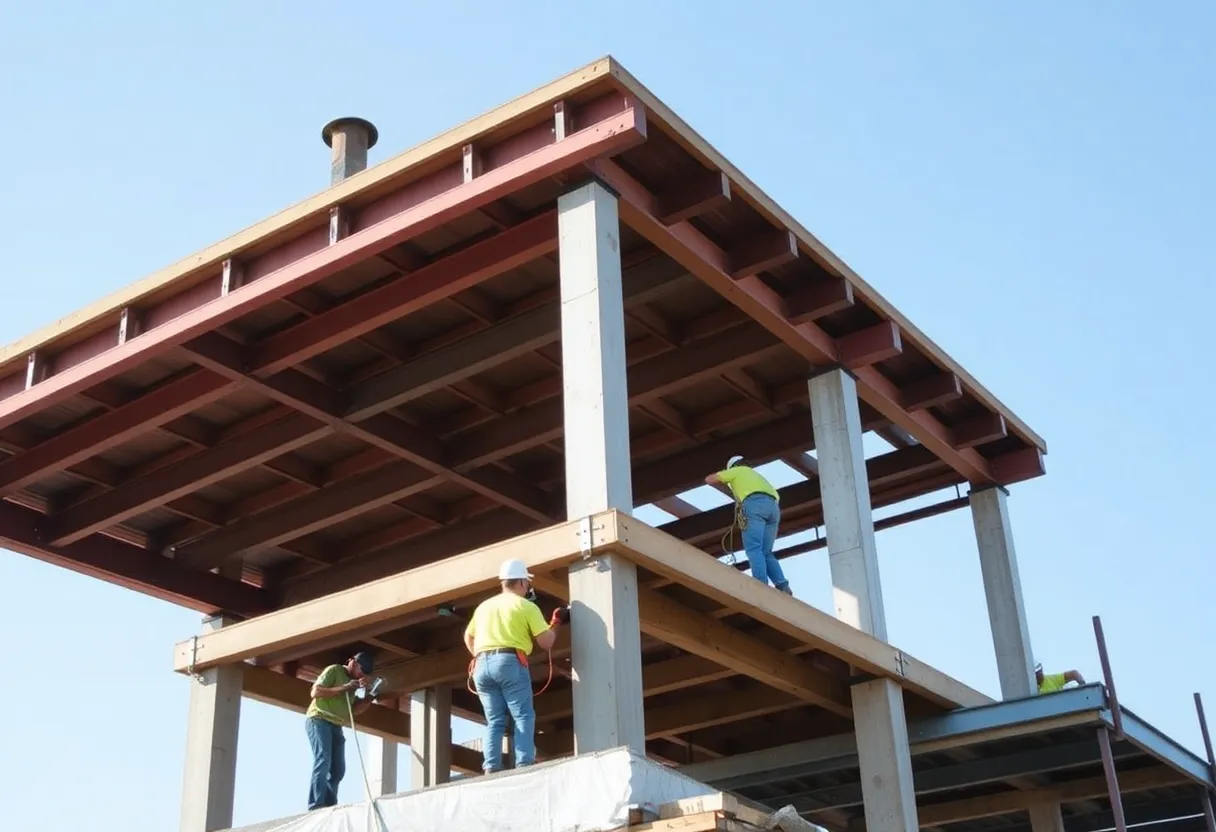News Summary
Artificial Intelligence (AI) is revolutionizing the construction industry by enhancing Building Information Modeling (BIM). AI automates tasks and analyzes data to improve project planning, making processes faster and more efficient. With market growth expected to soar, North Carolina-based start-ups are leading the charge with innovative technologies that streamline BIM processes. Despite challenges in updating project information, AI presents solutions that reduce disputes and improve accuracy, potentially transforming how construction projects are designed, built, and operated.
The Rising Impact of Artificial Intelligence on Building Information Modeling in Construction
Artificial intelligence (AI) is transforming the construction industry, particularly in the realm of Building Information Modeling (BIM), which serves as a collaborative method that collects and manages extensive data on architectural projects. This encompasses not only the design and structural elements but also vital factors such as time (known as 4D), cost (5D), sustainability (6D), and facilities management (7D).
BIM: A Brief History
The origins of the BIM concept can be traced back to the 1970s. However, it experienced a significant surge in popularity during the 2000s, largely due to advancements in technology. Today, the focus of BIM practices remains on involving stakeholders in sharing data to enhance project metrics, which in turn leads to better outcomes.
AI’s Contribution
As part of a special summer series highlighting ‘hot’ technological advancements, the role of AI throughout various stages of construction projects—specifically the design, build, and operate phases—is under examination. The second stage of this series particularly investigates the ways that generative AI can lend additional benefits to construction processes.
AI’s capacity to automate tasks and swiftly analyze BIM data significantly enhances decision-making, ensuring projects are completed within the established timelines and budget constraints. The global market for AI applications in the construction sector is poised for explosive growth. Valued at around $1.8 billion in 2023, it is expected to soar to an estimated $12.1 billion by 2030, reflecting a remarkable growth rate of 31%.
Enhancing Project Planning and Scheduling
One of the most noteworthy advantages brought by AI lies in its ability to improve project planning and scheduling. By meticulously analyzing historical data, AI can create realistic timelines and effectively predict potential delays, which is essential for maintaining project momentum. This paradigm shift calls for construction companies to prepare for the groundbreaking changes that AI introduces, ultimately yielding competitive business advantages.
Innovative Solutions from Start-ups
Among the leading innovations in AI applications is a North Carolina-based start-up that has developed technology capable of converting 2D hand sketches into detailed 3D BIM models. This pioneering technology automatically recognizes room boundaries and types of walls based on hand-drawn architectural features, leading to significantly faster and more accurate model creation.
The platform goes beyond simple modeling; it seamlessly integrates with existing tools for auto-drafting and sales, thereby streamlining the housing design process. Once the designs are finalized, tools associated with the start-up automatically generate essential construction documents, cost assessments, and marketing materials.
Originally founded in 2018, this start-up has secured $80 million in funding, directly benefiting home builders by drastically enhancing operational efficiency and significantly cutting down design timelines. Their technology claims to shorten construction times to two or three times faster and reduce the time to launch new products by a notable 75%.
Ongoing Challenges with BIM
Despite the rapid advancements, challenges persist in the world of BIM. One prevalent issue includes delays in updating essential project information. This has opened the door for AI integration, which can facilitate real-time updates of project changes, thereby improving coordination and proactively resolving issues. Effective stakeholder communication is critical, and AI’s capabilities can significantly enhance dialogue about subcontractor performance, budget management, and timely project updates.
Reducing Disputes and Enhancing Accuracy
AI-enhanced BIM is not merely about efficiency; it also incorporates technologies such as blockchains for improved accuracy in construction change orders. With AI’s predictive capabilities to identify potential issues before they arise, projects might see a decrease in disputes, thereby fostering a more amicable construction environment.
Incorporating AI into BIM could drastically lower the frequency of disputes in the construction industry by validating claims and ensuring prompt payments, thus creating a more trustworthy and efficient business atmosphere.
As the construction industry embraces the integration of AI with BIM, the ramifications will be profound, changing how projects are designed, built, and operated in the future.
Deeper Dive: News & Info About This Topic
Additional Resources
- Connected World: AI in Construction and BIM
- Wikipedia: Building Information Modeling
- OpenPR: BPX Integrates AI with BIM
- Google Search: AI in Construction
- ScienceDirect: AI and BIM Research
- Google Scholar: AI in Construction
- AEC Magazine: Higharc Delivers 3D BIM Models
- Encyclopedia Britannica: BIM
- Buildings.com: How AR and BIM are Revolutionizing Construction
- Google News: BIM and AI
Author: Construction FL News
The FLORIDA STAFF WRITER represents the experienced team at constructionflnews.com, your go-to source for actionable local news and information in Florida and beyond. Specializing in "news you can use," we cover essential topics like product reviews for personal and business needs, local business directories, politics, real estate trends, neighborhood insights, and state news affecting the area—with deep expertise drawn from years of dedicated reporting and strong community input, including local press releases and business updates. We deliver top reporting on high-value events such as the Florida Build Expo, major infrastructure projects, and advancements in construction technology showcases. Our coverage extends to key organizations like the Associated Builders and Contractors of Florida and the Florida Home Builders Association, plus leading businesses in construction and legal services that power the local economy such as CMiC Global and Shutts & Bowen LLP. As part of the broader network, including constructioncanews.com, constructionnynews.com, and constructiontxnews.com, we provide comprehensive, credible insights into the dynamic construction landscape across multiple states.





